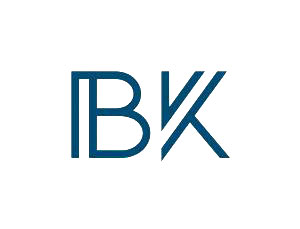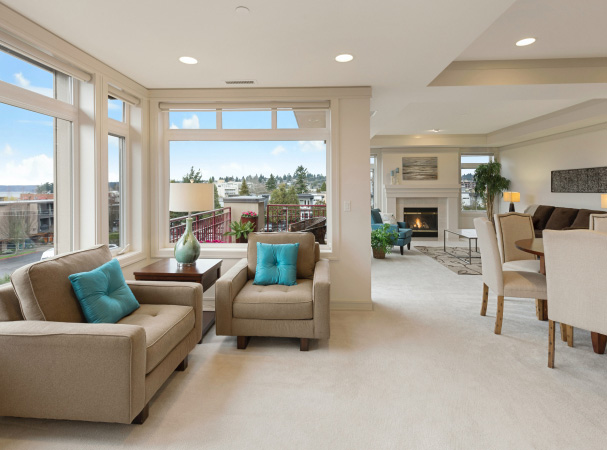Exploring Different Types of Mortgages: Which One Is Right for You?
Posted By: Rachel Kavanagh

Choosing the right mortgage is just as important as selecting the right home. Your mortgage determines how much your payments will be and how long it will take to become mortgage-free.
To help you find the right mortgage, we explore the different types available with the pros and cons.
Open vs. Closed Mortgages
First, you have the choice of an open or closed mortgage. This factor is essential, as all mortgages come with different penalties. The lender depends on your interest payments and wants you to stick to your mortgage agreement as closely as possible to make the most interest on your loan.
As a result, they offer two types of loans to ensure they lose as little interest as possible over the life of the mortgage:
1. Open Mortgage
An open mortgage provides more flexibility, allowing you to adjust your payments, pay larger amounts or even pay off the balance of your mortgage at any time without penalties. If you want the flexibility to manage your payments on your terms with the plan to pay your mortgage off as soon as possible, the open mortgage is a better choice.
However, on the downside, you will pay higher interest rates than you would for a closed mortgage. It helps the lender make up the potential losses when the mortgage is paid off sooner. You will also see your interest fluctuate, which impacts your mortgage payments.
2. Closed Mortgage
A closed mortgage is a commitment over a specific period, making a regular payment amount based on your choice of payment schedules. If you wish to change your payment terms, the lender charges a penalty.
The benefit of the closed mortgage is that you lock into an interest rate for the entire term and pay the same amount.
You also usually pay lower interest rates than you would for an open mortgage, which helps you pay down your mortgage. Most mortgage agreements permit a limited number of increased payments or an additional lump sum payment each year without penalty.
Mortgage Rates
Fixed Rate vs. Variable Rate Mortgages
The next consideration is fixed rate versus variable rate mortgages:
Fixed Rate
A fixed-rate mortgage is the most affordable option, providing a steady interest rate for the term of your mortgage. It locks into the current rates available when you are approved and won’t fluctuate regardless of whether interest rates rise or fall.
It is the safest bet if you can’t risk even slight increases in your mortgage payments, but it can also mean you stand to miss out should interest rates drop.
Also, because of the stability, you pay higher rates than you would for variable rates in most cases.
Variable Rate
Variable rates rise and fall based on the Bank of Canada/lender’s prime rate. As a result, you are at risk of rising interest rates that can make your mortgage payments less affordable.
On the plus side, should interest rates drop, you save money over the term of your mortgage. Also, variable mortgage rates tend to mean your penalties are lower should you break the mortgage agreement.
Current Rates
During the beginning of your home-buying journey, it’s also important to do some research on current rates.
As we mentioned earlier, certain rates are subject to frequent change. By learning about the more recent rates that apply to your area, you will have more insight into what to expect from your mortgage, and in turn, be better prepared.
If you’re looking to buy a house for sale in Markham, Ontario, take a look at the following rates you should know about:
- Current Variable Mortgage Rate: 6.30%
- Current Prime Rate: 7.20%
Here is a brief overview of how those rates will look over different terms:
- 6 Months:
- Bank rates: 6.59%
- Payment per $100K: $675.29
- 1 Year:
- Bank rates: 7.59%
- Payment per $100K: $737.22
- 2 Years:
- Bank rates: 7.14%
- Payment per $100K: $709.08
- 3 Years:
- Bank rates: 6.94%
- Payment per $100K: $696.72
- 4 years:
- Bank rates: 6.79%
- Payment per $100K: $687.50
- 5 years:
- Bank rates: 6.84%
- Payment per $100K: $690.57
- 7 years:
- Bank rates: 7.10%
- Payment per $100K: $706.60
- 10 years:
- Bank rates: 7.25%
- Payment per $100K: $715.92
If you’re still unsure how to navigate mortgage rates or where to even start, you have no need to worry. Contact us here and one of our seasoned brokers will walk you through the entire process, from start to finish. We have access to the best rates in Markham and can’t wait to help you choose the most suitable mortgage for your dream home.
Mortgage Types
Convertible Mortgages
Convertible mortgages allow you to change the type of mortgage you have. For example, if you have an open mortgage but find you’d prefer to lock into the better interest rates of a closed mortgage during the mortgage term, the convertible mortgage allows you to make this change without penalty.
Another example would be switching from the fluctuating interest rates of a variable mortgage if interest rates are rising and lock into a steady interest rate of a fixed mortgage.
Although convertible mortgages have lower interest rates than open mortgages, they tend to have higher rates than a closed, fixed-rate mortgage.
Reverse Mortgages
Reverse mortgages allow homeowners 55 years of age and over to tap into the equity in their homes. It is called a reverse mortgage, as it reverses who makes payments, with the bank providing a lump sum or monthly payments to the homeowner.
They are a common way for retired homeowners to cover living expenses or access funds for things like travel, sharing their equity with their children, or renovating their homes to age in place.
The remainder of the reverse mortgage balance is due once the homeowner decides to sell or passes away. It can be a challenge for heirs as there is a slight chance the home’s worth at the time of their parent’s death won’t cover the costs of the reverse mortgage payments their parents received.
However, these cases would be rare. To limit risks, it’s best to opt for monthly payments over a lump sum and, when possible, to make payments towards the money accessed now and then.
Hybrid Mortgages
Hybrid mortgages have become quite popular, allowing homeowners to combine different types of mortgage products and features to create a customized solution. For example, choose a fixed/variable rate where some payments have a fixed interest rate while the balance is a variable rate.
This tip helps limit risk while providing benefits should interest rates drop. A financial planner can help you choose the best mortgage products to create a tailored solution that enables you to meet your financial goals.
Considerations When Choosing a Mortgage
The most important considerations when choosing a mortgage include:
- The Principal Amount: This is the amount you owe the lender. Interest is applied to the principal, and in most cases, homeowners pay strictly interest in the first five years of their mortgage. After that, their payments start reducing the principal amount.
- The Term: A mortgage term refers to the length of your mortgage contract. Typically, the term is five years, at which time the lender renegotiates your terms, including your interest rate, penalties for breaking the contract, and the amount of time until you renew your mortgage again.
- Amortization: This is the length of time it is expected to take to pay off your mortgage in full when sticking to your mortgage payment terms. The longer your amortization, the lower your payments and the more interest you pay.
- Interest Rate: Your interest rate is the fee the lender charges for your mortgage loan. The interest rate offered by lenders is based on several factors, including the term of your mortgage, variable versus fixed rate, the lender’s prime rate, your credit history and the type of lender.
Other factors include being self-employed, a sporadic employment history, and a lack of credit history.
The lender considers all these things to determine if they will offer you a discounted interest rate. The more risk the lender feels you present, the higher your interest rate will be.
Before starting your house-hunting journey, we are here to offer advice and help you navigate the complexities of finding the right mortgage. Visit our website for more information, use our mortgage calculator, or contact us here to set up a free consultation with our team.




